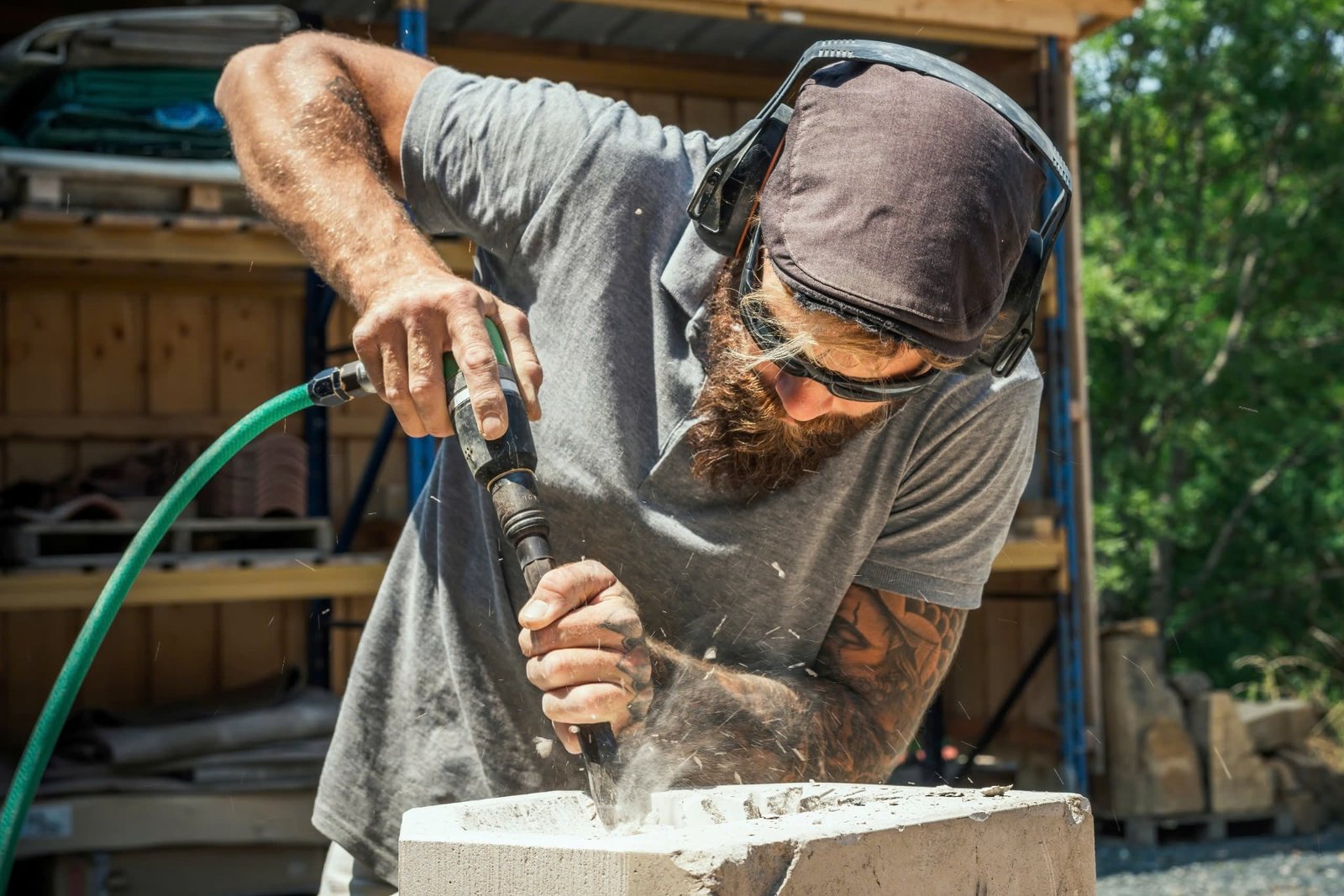
When it comes to modern kitchen renovations, countertop installation is one of the most transformative and value-adding upgrades you can make
When it comes to modern kitchen renovations, countertop installation is one of the most transformative and value-adding upgrades you can make. Whether you’re updating outdated surfaces, improving functionality, or enhancing aesthetics, installing new countertops instantly elevates your space.
But with so many materials, methods, and installation options available, it’s essential to understand the process, costs, and potential challenges before starting your project. In this complete guide, we’ll explore everything you need to know about kitchen countertop installation—from materials like granite and quartz to DIY vs. professional approaches and what to do if something goes wrong.

Why Countertop Installation Matters
Your kitchen countertops are more than just a workspace—they’re central to your kitchen’s functionality, hygiene, and style. Whether you’re upgrading with granite countertops installed for luxury or opting for quartz countertop installation for durability, new countertops provide:
- Enhanced property value
- Increased durability and resistance
- Improved food prep and cooking experiences
- Modernized kitchen aesthetics
- Easier cleaning and maintenance
A well-executed countertop installation is not just an upgrade—it’s a long-term investment in your home.
Popular Types of Countertop Materials
Choosing the right material for your kitchen countertop fitting depends on your budget, usage, and design preference. Here are the top options:
Granite
- Natural stone with unique patterns
- Heat-resistant and durable
- Requires sealing
- Ideal for luxury kitchens
Quartz
- Engineered stone with consistent color
- Non-porous and low maintenance
- Doesn’t require sealing
- Ideal for busy kitchens
Laminate
- Affordable and DIY-friendly
- Available in various styles
- Less durable over time
- Suitable for light use
Butcher Block
- Warm, natural wood aesthetic
- Must be sealed and maintained regularly
- Not heat-resistant
- Great for rustic or farmhouse designs
DIY vs. Professional Countertop Installation
One of the most important decisions you’ll face is whether to install the countertops yourself or hire a professional. Each option comes with advantages and trade-offs.
DIY Countertop Installation
Many homeowners are now choosing DIY routes to save on labor costs and gain full control over their renovation process.
Pros:
- Saves on countertop installation cost
- Allows for custom scheduling and design
- Offers hands-on satisfaction
- Ideal for smaller or straightforward layouts
Cons:
- Requires proper tools and knowledge
- Risk of damage or poor results
- No warranty coverage
Thinking about going the DIY route? Discover the benefits and considerations in
👉 Why Choose DIY Countertop Installation Instead of Hiring a Professional?
Professional Installation
Hiring a certified installer ensures expertise and precision, especially for complex projects.
Pros:
- Seamless results with warranty support
- Correct handling of heavy materials like granite
- Efficient, fast installation
Cons:
- Higher upfront cost
- Less personal control over scheduling or design
Professional installation is usually best for custom designs, heavy materials, or kitchens requiring plumbing and electrical integration.
Cost of Countertop Installation
Countertop installation cost depends on various factors such as:
- Material type (granite, quartz, laminate, etc.)
- Square footage
- Number of cutouts (sinks, appliances)
- Edge profiles and backsplashes
- Location and labor availability
| Material | Cost per Sq. Ft. (Installed) |
|---|---|
| Laminate | $20 – $50 |
| Butcher Block | $35 – $70 |
| Quartz | $70 – $120 |
| Granite | $80 – $150+ |
Pro Tip: Budget an additional 10–20% for potential overages, adjustments, or countertop repair if needed.
Common Challenges During Installation
Even with proper planning, issues may arise—especially for DIY projects. Some of the most common problems include:
- Cracks and breaks during transport or cutting
- Poor seam placement or finish
- Incorrect sink or cooktop cutouts
- Uneven installation due to unlevel cabinets
- Incomplete sealing leading to stains or mold
If you face any of these setbacks, don’t worry—help is available. Learn who can assist with repairs or adjustments in
👉 Who Can Help If Something Goes Wrong During Your DIY Countertop Installation?
Countertop Repair and Resurfacing
Not every damaged surface requires full countertop replacement. Depending on the issue and material, countertop repair or countertop resurfacing may be an option.
When to Repair:
- Small chips or cracks
- Minor burn marks or scratches
- Stained areas on natural stone
When to Replace:
- Deep cracks or structural issues
- Poor DIY fit or misalignment
- Significant water damage or warping
Repair professionals can re-seam, polish, reseal, and patch many types of damage, saving you time and money.
How to Find Countertop Installation Near You
Searching for countertop installation near me will return dozens of local professionals—but how do you choose?
Look for:
- Experience with your material (especially granite or quartz)
- Positive reviews and before/after photos
- Warranty options
- Licensed and insured contractors
You may also want to visit stone yards or showrooms where fabricators are on-site. These experts can guide you from selection to installation.
Tips for a Smooth Countertop Installation
Whether DIY or hiring a pro, here are tips to ensure your project is a success:
- Measure twice—ensure precise templating before cutting
- Level cabinets to avoid seams or cracks later
- Dry-fit pieces before applying adhesives
- Use proper supports for overhangs longer than 12 inches
- Seal natural stone properly to prevent moisture damage
Final Thoughts
From planning to execution, countertop installation is one of the most impactful updates you can make to your home. Whether you’re installing granite countertops, opting for durable quartz, or working with budget-friendly laminate, the result should reflect both beauty and function.
DIY offers savings and control—but only when done right. Hiring a professional brings expertise and assurance but at a higher cost. No matter the path you take, being informed is your most valuable tool.

